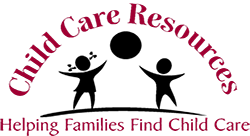Health & Safety
As program administrators or teachers in child care programs, the key requirement of your job is to protect and promote the health and well-being of the young children in your care. This means keeping children safe from both injury and illness. There should be health and safety policies and procedures established for your program that follow state regulations that regulate Licensed Child Care programs and Registered Family Child Care homes. The following subjects are pertinent to running a healthy and safe child care program. Child Care Resources can assist in helping you navigate resources for more information on these and other health and safety topics.
Cardiopulmonary Resuscitation (CPR) and First Aid
CPR is used when an infant, child or adult’s heart stops beating or the person is unable to breathe. CPR involves rescue breathing and chest compressions. The Heimlich Maneuver is also discussed during CPR training, which is when a choking victim has an obstructed airway. First aid training reviews what treatment is needed for various injuries and illnesses. These trainings are required for anyone working in a Licensed Child Care Center, Registered Family Child Care Providers and Family, Friend and Neighbor (FFN) care. This training is offered at Child Care Resources on a monthly basis.
Medication Administration
Training in administering medication ensures child care providers are able to dispense prescribed and over-the-counter medications to children in their care. This training also educates participants on how to recognize any potential adverse side effects from medications, safeguarding that children receive appropriate treatment. Child Care Resources offers this training twice a year on our Semi-Annual Professional Development calendar.
Preventing Infectious Diseases
Concern about infectious disease in child care is an everyday worry for child care providers and parents. As such, child care programs must establish detailed policies to prevent and manage infectious diseases. Good handwashing and sanitation procedures help prevent the spread of disease. Children and adults should wash their hands at the recommended times including as soon as they arrive, before and after food preparation, handling and eating, after playing outdoors and after using the bathroom and diapering. Other measures to prevent infectious diseases in child care programs include, requiring certain immunizations, reporting some illnesses to government entities, excluding some children from care due to the type and condition of the disease, and keeping staff and families well informed of procedures and policies as they relate to infectious diseases. Workshops such as “Keeping Children Healthy” and “Child Safety and Injury Prevention in Child Care Settings” are offered regularly on the agency’s Semi-Annual Professional Development calendar.
Child Abuse and Neglect
All child care providers need to know how to recognize the signs of abuse and neglect and how to report all suspected abuse. To protect you, your child care program and most importantly the children in your care, training on preventing, identifying and reporting child abuse and neglect should be conducted for everyone and anyone working in your child care program. Child abuse and neglect workshops are offered regularly at Child Care Resources and review the most common forms of abuse and neglect, the legal mandates of reporting abuse and how and when to report.
Child Care Resources also offers the Strengthening Families Initiative through the New Jersey Department of Children and Families. The Strengthening Families Initiative is an approach to preventing child abuse and neglect by strengthening families through early care and education. Licensed Child Care Centers and Registered Family Child Care Providers can enroll in this program. For more information about the Strengthening Families Initiative in Monmouth County, please contact our Child Care Development Manager, Marcy Spinner, at 7320-918-9901, Ext. 124 or at mspinner@ccrnj.org or click here.
Inclusion of Children with Special Needs in Child Care
Many children are being diagnosed with serious health or developmental problems. Therefore it is very likely that you will be including a child with special needs in your child care program. Child Care Resources offers many workshops on this topic on our Semi-Annual Professional Development Calendar. For more information, please visit:
New Jersey Association of Child Care Resource and Referral Agencies (NJACCRRA)
http://www.njaccrra.org/healthSpecialNeeds.shtml
New Jersey Inclusive Child Care Project: Including Children with Special Needs in Typical Early Childhood Settings
www.spannj.org/njiccp/index.html
Resources
As stated above, Child Care Resources offers many health and safety workshops throughout the year on our two Semi-Annual Professional Development Calendars and through our On-Site Professional Development program. For more information, click here.
To request information about any of these topics or to consult with our Child Care Development Manager, Marcy Spinner, at 732-918-9901, Ext. 124 or at mspinner@ccrnj.org.
Centers for Disease Control and Prevention
National Resource Center for Health and Safety in Child Care and Education
Kids Health from Nemours
Healthy Child Care America: A Program of the American Academy of Pediatrics
http://www.healthychildcare.org/
American Academy of Pediatrics
